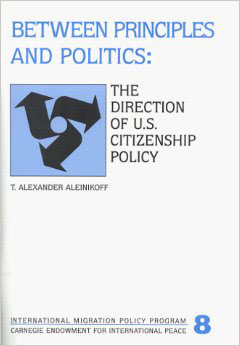Between Principles and Politics: The Direction of U.S. Citizenship Policy
No immigration issue today is more controversial than the line dividing the rights and responsibilities between citizens and resident aliens. The author cuts through the partisan rhetoric that has inflamed public debate over this issue to provide a lucid and carefully nuanced analysis of the legal norms that have guided U.S. citizenship policy.
